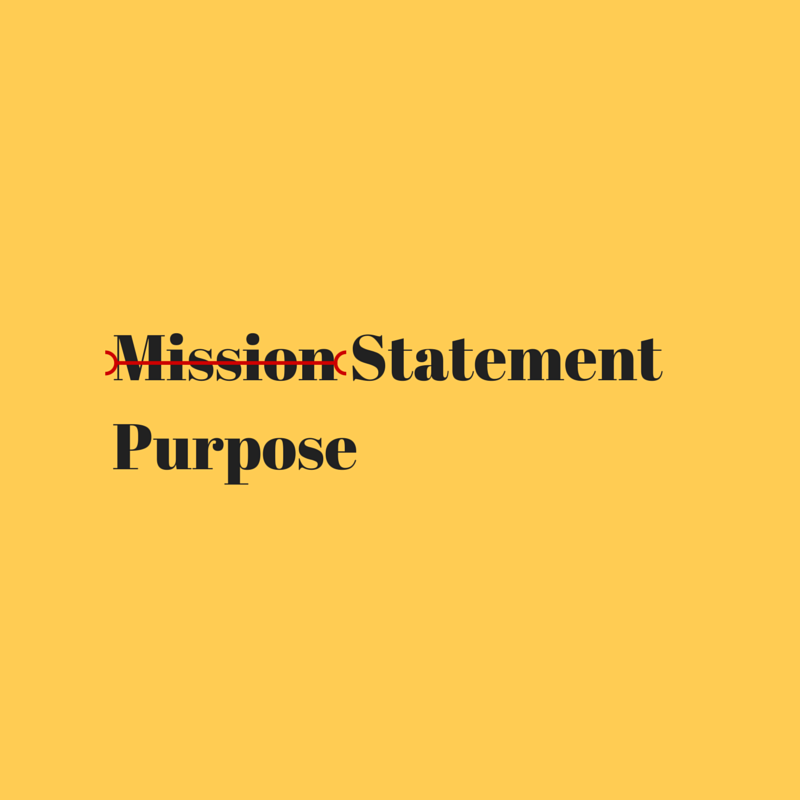In recent posts, I have shared how values and motivation drive your personal brand’s purpose. It is now time to pull it all together by putting into your reason for being into words, packaging purpose, if you will. The benefits of distilling your purpose into words are:
- It’s communicable – Committing your purpose to words is a simple way to convey what drives you to create value for others and yourself.
- It’s memorable – Putting your purpose into words enables others to easily associate your personal brand with the values and motivation behind your purpose.
- It’s powerful – Most of your competition has not gone through the process of defining their purpose. Articulating your purpose sets you apart by creating clear meaning for your brand.
So how can you transform why you exist into words? One method for communicating purpose is a personal purpose statement. This approach combines methodology with creativity, allowing you to follow a “formula” while giving you leeway to package your purpose into a collection of words relevant to you.
Purpose Instead of Mission
You might be familiar with a mission statement- most organizations have them to summarize what they do and who they serve. It is often described as a statement of a firm’s reason for being. Many personal branding experts suggest composing a mission statement for your personal brand. This advice is not wrong or over-the-top (although some people struggle with the idea of applying concepts used on non-living entities like a business to themselves). But, the concept of a statement that summarizes your reason for being can be made more personal by not coming at it like a mission statement.
Instead, you should package thoughts about your existence and value offered in the form of a purpose statement. In contrast to a mission statement that suggests existence is a means to an end (i.e., achieving a goal), a purpose statement is a declaration of who you are and what you have to offer- today, next week, next year.
Why is defining your purpose preferable to stating a mission? Human Resources expert Stephanie Krieg cites three advantages of packaging your personal brand using purpose instead of mission:
- Purpose plays to the Law of Attraction – When you state your purpose, it can have the effect of drawing others to you that have a similar vision or interests.
- Purpose is inspiring – A purpose energizes you to be and do, while a mission is a course of action to which we strive to follow to stay “on course.”
- Purpose is empowering for the greater good – Purpose goes beyond a goal orientation associated with a mission statement. When you are able to live out our purpose, benefits are realized not only personally but also through the impact you have on your co-workers, customers, and communities.[i]
How to Write a Personal Purpose Statement
The process for writing a purpose statement is similar to earlier tasks you completed to gain understanding of your values and motivations- You need to ask questions of yourself to develop pieces of your purpose statement. Specifically, three questions that can reveal purpose are:
- Who am I? To answer this question, consider the industry in which you aspire to belong, the target market you serve, and the type of work that you do. Part of your purpose is wrapped in these standard descriptions or labels that are applied to our work.
- What do I do? This question takes into account tasks performed in your work, how you create value for those whom you serve, and why your work is valuable to other people.
- What is my impact? A follow-up to the “what do I do” question is “so what?” Impact answers the “so what” question- what benefits are realized from what you do? How does the work that you do differentiate you?
Let’s put these three pieces together in a template you can use to write your personal purpose statement:
I, (your name), am (description of industry, occupation, market served, or job title) that (value created and benefit).
Using this template, I (Don) created a personal purpose statement:
I, Don Roy, am a marketing educator who helps position future businesspeople by encouraging them to grow intellectually and compete professionally.
After writing this statement, I reflected to consider if it truly fit me, or was it a collection of words written to the template. The answer was clear- It is me. It is the approach I take in developing the courses I teach, how I conduct each class meeting, and counsel I give to students. The elements of my purpose statement figure prominently in the scholarly research in which I engage and the professional writing I do.

